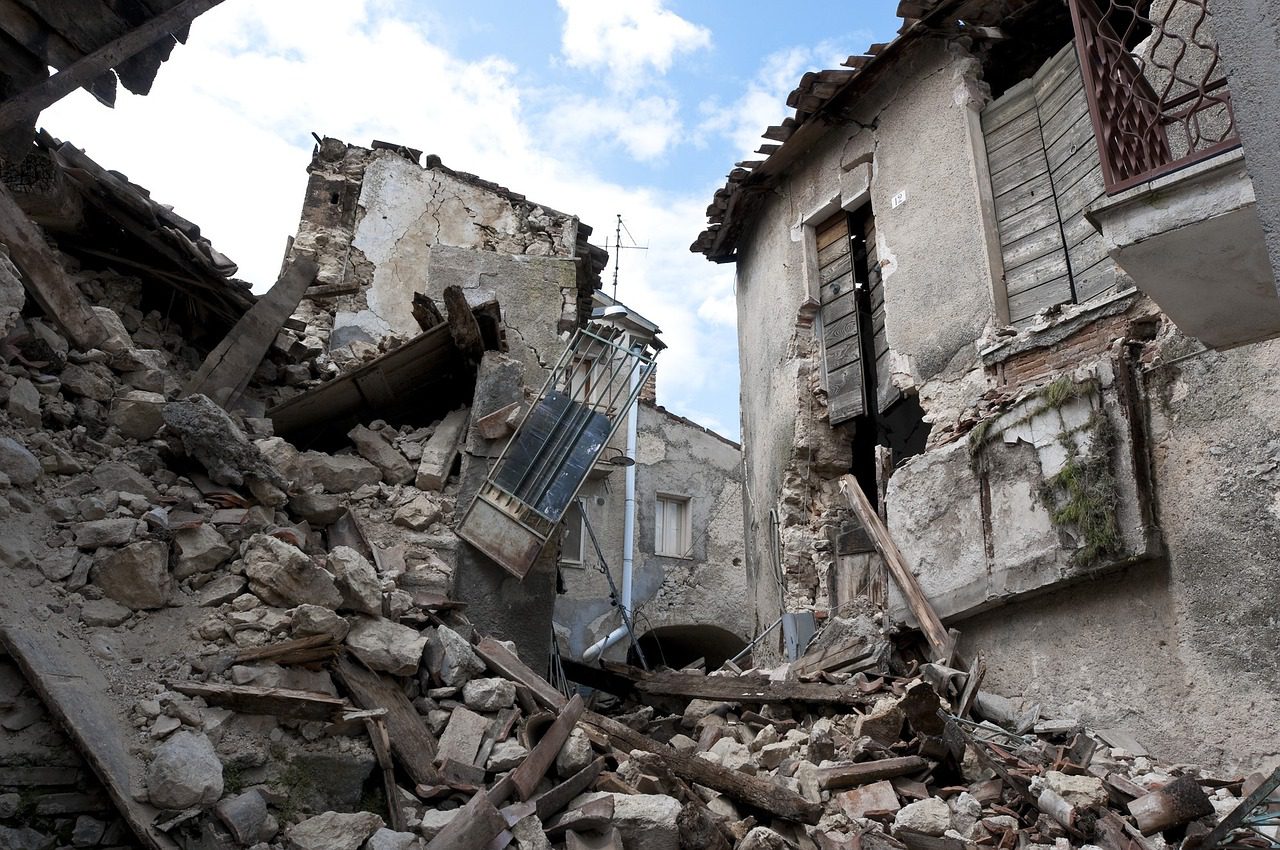The already fraught relationship between India and Pakistan has plunged into deeper crisis following a recent, devastating terror attack and a swift military retaliation. The massacre of tourists in the serene landscape of Pahalgam, Jammu & Kashmir, acted as the catalyst for India’s forceful response, codenamed “Operation Sindoor.” This operation saw Indian armed forces launch precision missile strikes against alleged terrorist infrastructure nestled within Pakistani territory and Pakistan-Occupied Kashmir.1 While the geopolitical ramifications of this military action continue to unfold, a particularly poignant and potentially volatile development has emerged: a purported statement from Maulana Masood Azhar, the chief of the notorious Jaish-e-Mohammed (JeM) terrorist organization, expressing his profound grief and a wish for his own death following the reported loss of numerous family members and close associates in the operation.3 This blog post delves into the sequence of events, the impact of Operation Sindoor, the profile of the man behind this lament, and the broader implications for a region teetering on the edge.5
The Pahalgam Attack: A Massacre in Paradise
The tranquility of Pahalgam, a popular tourist destination in Jammu & Kashmir, was shattered on April 22, 2025, when a brutal terror attack claimed the lives of 26 individuals.7 The victims were primarily Indian Hindu tourists, along with one Nepali citizen, who were enjoying the scenic beauty of the region.7 This horrific incident immediately drew condemnation from India, with accusations leveled directly at Pakistan for allegedly supporting the gunmen responsible.1 New Delhi asserted that the perpetrators had links across the border and were part of Pakistan’s long-standing strategy of fomenting unrest in the Kashmir region.1 Islamabad, however, vehemently denied any involvement in the Pahalgam attack.1 Instead, Pakistani officials offered to cooperate with any international investigation into the incident, emphasizing their commitment to regional stability and rejecting India’s accusations as baseless.1 This cycle of attack and denial is a familiar pattern in the complex and often violent history between the two nations.2 Terrorist attacks targeting civilians, particularly in the sensitive region of Kashmir, have historically served as flashpoints, igniting escalations in the already tense relationship.1 The deliberate targeting of tourists in Pahalgam could be interpreted as a calculated move to destabilize the region, damage India’s tourism sector, and sow widespread fear and anxiety.10 The attack immediately put Prime Minister Narendra Modi under significant domestic pressure to deliver a strong response, especially given his government’s claims of improved security in Kashmir.7
Operation Sindoor: India’s Decisive Response
In the early hours of Wednesday, May 7, 2025, India launched a swift and forceful military operation in retaliation for the Pahalgam attack.7 This operation, codenamed “Operation Sindoor,” involved a series of precision missile strikes targeting nine locations within Pakistan and Pakistan-Occupied Kashmir.7 According to Indian sources, a barrage of 24 missiles was unleashed in a span of just 25 minutes, striking at what the Indian government described as terrorist infrastructure.7 The targeted sites included key locations associated with prominent terrorist organizations such as Jaish-e-Mohammed (JeM) and Lashkar-e-Taiba (LeT).7 Within Pakistan, the strikes reportedly hit Bahawalpur, the headquarters of JeM; Muridke, the stronghold of LeT; and camps in Sialkot believed to be used by both JeM and Hizbul Mujahideen.8 In Pakistan-Occupied Kashmir, targets included facilities in Muzaffarabad and Kotli, also linked to LeT and JeM.8 The Indian government maintained that “Operation Sindoor” was a “focused, measured, and non-escalatory” response, carefully designed to target only terrorist infrastructure while avoiding any Pakistani military installations or civilian areas.8 Sources within India claimed that the operation resulted in the elimination of over 70 terrorists and left more than 60 wounded, significantly degrading the operational capabilities of these terror outfits.7 This operation marked a notable shift in India’s approach, appearing more assertive and technologically advanced compared to previous military responses.7 The coordinated effort involving all three branches of the Indian armed forces signaled a strong resolve to dismantle terrorist networks operating from Pakistani soil.7 The choice of precision strikes using advanced weaponry like cruise missiles and smart bombs underscored India’s enhanced military capabilities and its willingness to employ them against perceived threats.7 The targeting of JeM’s central command facility in Bahawalpur, in particular, aimed to strike at the heart of the organization, potentially disrupting its leadership and operational effectiveness.12
“I Wish I Had Died Too”: Masood Azhar’s Personal Loss and Reaction
In the aftermath of “Operation Sindoor,” a statement attributed to Jaish-e-Mohammed chief Maulana Masood Azhar surfaced, revealing the profound personal impact of the Indian strikes.3 According to multiple reports, Azhar acknowledged the deaths of 10 members of his family, including his elder sister and her husband, a nephew and his wife, another niece, and five children from his extended family.12 Additionally, he reportedly confirmed the deaths of four close aides, including his mother and a key associate.12 In a deeply personal and perhaps unexpected expression of grief, Azhar reportedly stated his wish to have been among the “fortunate dead” who perished in the attack.16 He also vehemently condemned Indian Prime Minister Narendra Modi, accusing him of targeting “innocent kids, women in veil and elderly”.16 The Indian missile strike that inflicted this personal loss reportedly targeted the Jamia Masjid Subhan Allah in Bahawalpur, which served as the central command facility for JeM.12 This acknowledgment of significant family casualties by a figure like Masood Azhar, a UN-designated global terrorist, is a rare glimpse into the personal lives of those who orchestrate violence.4 While the authenticity and strategic intent behind Azhar’s statement cannot be definitively confirmed, it nonetheless highlights the human cost of conflict, even for those on the perpetrating side.20 This expression of grief, however, could also be strategically employed by JeM to garner sympathy, portray themselves as victims of aggression, and potentially incite further acts of retaliation.20 Azhar’s accusations against the Indian Prime Minister aim to frame the operation as an attack on civilians rather than solely on terrorist infrastructure, potentially fueling anti-India sentiment and rallying support for their cause.16
Who is Masood Azhar? The Ideologue Behind the Terror
Maulana Masood Azhar is a name synonymous with anti-India terrorism for over two decades.14 Born in Bahawalpur, Pakistan, Azhar’s early life was steeped in religious conservatism.21 He became involved with the terrorist group Harkat-ul-Ansar (HuA), later known as Harkat-ul-Mujahideen (HuM), in the early 1990s.21 His activities led to his arrest in India in 1994 for involvement in terrorist acts.21 However, his incarceration was short-lived. In a dramatic turn of events in 1999, Azhar was released from an Indian prison in exchange for the safe return of passengers aboard a hijacked Indian Airlines flight IC-814.3 Soon after his release in 2000, Azhar founded Jaish-e-Mohammed (JeM), reportedly with the backing of Osama bin Laden and the Taliban regime in Afghanistan.22 JeM’s stated objectives include the annexation of Indian-administered Kashmir to Pakistan and the expulsion of foreign forces from Afghanistan.26 Over the years, JeM has been implicated in numerous high-profile terror attacks in India, including the deadly attack on the Indian Parliament in 2001 4, the 2016 attack on the Pathankot airbase 4, and the devastating Pulwama suicide bombing in 2019 that killed 40 Indian security personnel.4 In recognition of his role in international terrorism, the United Nations Security Council designated Masood Azhar as a global terrorist in 2019.4 Besides his leadership role, Azhar is also known for his prolific writings on jihad and his virulently anti-Semitic views.21 JeM under Azhar’s leadership has been described as a family-run enterprise, with key positions often held by his relatives, including his brother Abdul Rauf Asghar, who is also a senior leader and intelligence coordinator within the organization.28 Azhar’s long and uninterrupted involvement in orchestrating terror attacks against India underscores the persistent challenge in neutralizing such figures and the deep-seated nature of the conflict. His release in 1999 in exchange for hostages remains a controversial decision, highlighting the difficult choices governments face when confronted with terrorism.24
Reactions and Fallout: A Region on Edge
Following India’s “Operation Sindoor,” reactions from both sides of the border were immediate and intense. Pakistan strongly condemned the Indian strikes, labeling them an “act of war” and accusing India of violating its sovereignty.13 Islamabad claimed that the Indian missiles had targeted civilian sites, including mosques, resulting in the deaths of at least 26 people and injuring many more.13 Initially, Pakistan’s military spokesperson claimed to have shot down five Indian jets, a claim that India did not confirm and some reports suggested involved crashes within Indian-controlled territory.39 In contrast, India maintained that its operation had solely targeted terrorist infrastructure and that there were no civilian casualties.5 Indian officials asserted that the strikes were precise and avoided any Pakistani military or civilian facilities.8 The aftermath of the strikes witnessed a surge in cross-border shelling and gunfire along the Line of Control (LoC), the de facto border separating the two countries in Kashmir.2 Both sides accused each other of initiating the firing, further escalating tensions in the already volatile region.1 The international community responded with widespread concern, with the United Nations, the United States, China, and several other nations urging both India and Pakistan to exercise maximum restraint and avoid any further escalation.9 Iran even offered to mediate between the two nuclear-armed neighbors.1 In the wake of the military action, both countries took further steps that signaled a deepening crisis. Pakistan closed its airspace to Indian airlines, while India reciprocated by shutting its airspace to all Pakistani aircraft.1 India also took the significant step of suspending its participation in the Indus Waters Treaty, a decades-old agreement for sharing the waters of six rivers, a move that could have severe implications for Pakistan’s water security.1 The immediate reactions underscored the deep mistrust and animosity that persist between India and Pakistan, with each side presenting starkly different narratives of the events.39 The suspension of the Indus Waters Treaty, in particular, represents a dangerous escalation, potentially adding a new dimension to the conflict beyond military confrontations.11
The History of Conflict and the Shadow of Terrorism: A Volatile Legacy
The recent events are not isolated incidents but rather a continuation of a long and troubled history between India and Pakistan, marked by multiple wars and persistent tensions, primarily over the disputed region of Kashmir.2 Since their independence in 1947, the two nations have fought wars in 1947-48, 1965, and 1971, as well as the Kargil conflict in 1999.2 Kashmir remains a central point of contention, with both countries claiming the region in its entirety but administering it in parts.2 Terrorism has been a recurring and deeply damaging factor in this relationship, with India consistently accusing Pakistan of providing support, training, and safe havens to various militant groups operating in Kashmir.1 Pakistan has consistently denied these allegations, maintaining that it only provides moral and diplomatic support to the Kashmiri people’s struggle for self-determination.1 The Pahalgam attack and India’s subsequent retaliation fit into this historical pattern of violence and accusation.46 The absence of strong bilateral communication and escalation control mechanisms between the two nuclear-armed neighbors further exacerbates the risk of miscalculation and unintended escalation.44 The international community has long recognized South Asia as a potential nuclear flashpoint, making any military confrontation between India and Pakistan a matter of grave global concern.44 The cyclical nature of terrorist attacks followed by military responses has proven difficult to break, perpetuating a legacy of mistrust and instability in the region.
Conclusion: A Terrorist’s Grief in a Region of Conflict
The recent escalation between India and Pakistan, triggered by the horrific attack in Pahalgam and India’s retaliatory “Operation Sindoor,” underscores the enduring volatility of the South Asian region. The purported statement from Jaish-e-Mohammed chief Masood Azhar, expressing his personal devastation and a wish for death following the reported loss of his family members, adds a complex and potentially dangerous dimension to the unfolding crisis. While the sincerity and strategic implications of Azhar’s lament remain open to interpretation, it serves as a stark reminder of the human cost of conflict, even for those who perpetrate terror. In the context of the deeply entrenched animosity and historical baggage between India and Pakistan, coupled with the ever-present threat of terrorism, the region remains on a precarious edge. The international community’s urgent calls for de-escalation highlight the global concern over the potential for a wider and more devastating conflict between these nuclear-armed neighbors. The path forward requires a concerted effort towards dialogue, de-escalation, and a renewed focus on addressing the root causes of terrorism and the long-standing dispute over Kashmir to prevent further bloodshed and instability. Find more war news related article on our blog, kalikablogs.com.
References:
- https://apnews.com/article/india-pakistan-kashmir-explainer-8594b9e7694e0f3c6b4795e232d01cd9 1
- https://www.ndtv.com/india-news/india-pakistan-tension-live-updates-operation-sindoor-pahalgam-terror-attack-jammu-and-kashmir-military-strike-latest-news-bahawalpur-8348396 7
- https://timesofindia.indiatimes.com/india/operation-sindoor-live-updates-jammu-and-kashmir-pahalgam-terror-attack-indian-army-military-strikes-pok-pakistan/liveblog/120950644.cms 8
- https://www.aljazeera.com/news/2025/5/6/india-launches-attacks-on-several-sites-in-pakistan 13
- https://www.pbs.org/newshour/show/india-strikes-pakistani-territory-in-response-to-militant-attack-on-tourists 10
- https://www.atlanticcouncil.org/blogs/new-atlanticist/experts-react/experts-react-india-just-launched-airstrikes-against-pakistan-whats-next/ 5
- https://www.aljazeera.com/news/2025/5/7/information-war-are-india-or-pakistan-telling-the-truth-about-attacks 39
- (https://www.youtube.com/watch?v=j2AzTYtoqXU) 55
- https://www.youtube.com/watch?v=XsylcDa57zs 3
- https://www.youtube.com/watch?v=P79rMM4u0q4 4
- https://www.financialexpress.com/india-news/operation-sindoor-jaish-e-mohammed-chief-masood-azhar-says-10-family-members-killed-in-indian-airstrike-on-bahawalpur-hq/3835855/ 12
- https://swarajyamag.com/news-brief/operation-sindoor-masood-azhars-family-aides-killed-in-indian-strikes-on-jems-bahawalpur-hub-says-report 18
- https://m.economictimes.com/news/defence/operation-sindoor-jaish-e-mohammed-chief-masood-azhars-sister-other-family-members-killed-in-indias-targeted-strikes/articleshow/120956479.cms 14
- https://www.livemint.com/news/jem-chief-masood-azhar-says-indias-operation-sindoor-strikes-in-bahawalpur-killed-his-10-relatives-11746602812880.html 16
- https://www.deccanherald.com/india/operation-sindoor-jem-chief-masood-azhar-says-10-members-of-his-family-4-others-killed-in-indias-missile-attack-on-his-hq-3528743 15
- (https://www.youtube.com/watch?v=ztbewIwBVPU) 20
- https://time.com/7283325/india-pakistan-attacks-kashmir/ 9
- https://www.aljazeera.com/news/2025/5/7/how-world-leaders-are-reacting-to-india-pakistan-military-strikes 41
- https://www.aljazeera.com/news/liveblog/2025/5/6/india-pakistan-fighting-live-india-fires-missiles-into-pakistan 6
- https://peoplesdispatch.org/2025/05/07/pakistan-calls-indias-attacks-unprovoked-and-blatant-act-of-war/ 37
- https://www.belfercenter.org/research-analysis/has-us-prevented-another-india-pakistan-war 44
- https://apnews.com/article/india-pakistan-kashmir-pahalgam-attari-wagah-a16c6fc5cf190f0ce0759ad4370a29cc 42
- https://www.pbs.org/newshour/world/pakistan-calls-indian-missile-strikes-an-act-of-war 38
- https://www.aljazeera.com/news/2025/5/7/india-pakistan-can-other-countries-pull-them-from-the-brink-of-conflict 45
- https://www.wxxinews.org/2025-05-07/the-latest-on-the-escalating-conflict-between-india-and-pakistan 56
- https://www.aljazeera.com/news/2025/5/7/why-did-india-strike-pakistan-all-we-know-about-operation-sindoor 43
- https://fpif.org/india-and-pakistans-crisis-water-war-and-warnings/ 11
- https://en.wikipedia.org/wiki/Masood_Azhar 21
- (https://www.hindustantimes.com/india-news/who-is-masood-azhar-10-things-to-know/story-PwhZAlalnvWvG2R6cF3ABK.html) 17
- https://main.un.org/securitycouncil/en/content/mohammed-masood-azhar-alvi 19
- https://www.aljazeera.com/news/2019/5/1/profile-what-is-jaish-e-muhammad 30
- https://www.nationalsecurity.gov.au/what-australia-is-doing/terrorist-organisations/listed-terrorist-organisations/jaish-e-mohammad 26
- https://www.satp.org/terrorist-profile/india/jaish-e-mohammed-jem 28
- https://www.dni.gov/nctc/groups/jem.html 36
Works cited
- A deadly attack on tourists preceded India’s strikes on Pakistan. Here’s where the rivals stand – AP News, accessed May 7, 2025, https://apnews.com/article/india-pakistan-kashmir-explainer-8594b9e7694e0f3c6b4795e232d01cd9
- India and Pakistan face a new crisis. Here’s a look at their history of armed conflict – AP News, accessed May 7, 2025, https://apnews.com/article/india-pakistan-kashmir-pahlagam-loc-c657a7c7ad14440b03f5f75887922b0b
- Operation Sindoor ‘Successful’: 2001 Attack Mastermind Masood Azhar Confirms That… – YouTube, accessed May 7, 2025, https://www.youtube.com/watch?v=XsylcDa57zs
- Deepti Decodes | Big Question After Operation Sindoor: Masood Azhar Dead Or Alive?, accessed May 7, 2025, https://www.youtube.com/watch?v=P79rMM4u0q4
- Experts react: India just launched airstrikes against Pakistan. What’s …, accessed May 7, 2025, https://www.atlanticcouncil.org/blogs/new-atlanticist/experts-react/experts-react-india-just-launched-airstrikes-against-pakistan-whats-next/
- India-Pakistan live: India strikes Pakistan, Pakistan-administered Kashmir | India-Pakistan Tensions News | Al Jazeera, accessed May 7, 2025, https://www.aljazeera.com/news/liveblog/2025/5/6/india-pakistan-fighting-live-india-fires-missiles-into-pakistan
- Operation Sindoor Live Updates: Over 300 Flights Cancelled, 25 …, accessed May 7, 2025, https://www.ndtv.com/india-news/india-pakistan-tension-live-updates-operation-sindoor-pahalgam-terror-attack-jammu-and-kashmir-military-strike-latest-news-bahawalpur-8348396
- Operation Sindoor LIVE Updates: Army chief monitoring LoC …, accessed May 7, 2025, https://timesofindia.indiatimes.com/india/operation-sindoor-live-updates-jammu-and-kashmir-pahalgam-terror-attack-indian-army-military-strikes-pok-pakistan/liveblog/120950644.cms
- India-Pakistan Conflict Escalates: Latest Updates | TIME, accessed May 7, 2025, https://time.com/7283325/india-pakistan-attacks-kashmir/
- India strikes Pakistani territory in response to militant attack on tourists | PBS News, accessed May 7, 2025, https://www.pbs.org/newshour/show/india-strikes-pakistani-territory-in-response-to-militant-attack-on-tourists
- India and Pakistan’s Crisis: Water, War, and Warnings – FPIF, accessed May 7, 2025, https://fpif.org/india-and-pakistans-crisis-water-war-and-warnings/
- Operation Sindoor: Jaish-e-Mohammed chief Masood Azhar says 10 …, accessed May 7, 2025, https://www.financialexpress.com/india-news/operation-sindoor-jaish-e-mohammed-chief-masood-azhar-says-10-family-members-killed-in-indian-airstrike-on-bahawalpur-hq/3835855/
- India launches Operation Sindoor, exchanges heavy fire with …, accessed May 7, 2025, https://www.aljazeera.com/news/2025/5/6/india-launches-attacks-on-several-sites-in-pakistan
- Operation Sindoor: Jaish-e-Mohammed chief Masood Azhar’s sister & other family members killed in India’s targeted strikes – The Economic Times, accessed May 7, 2025, https://m.economictimes.com/news/defence/operation-sindoor-jaish-e-mohammed-chief-masood-azhars-sister-other-family-members-killed-in-indias-targeted-strikes/articleshow/120956479.cms
- Operation Sindoor: Jem Chief Maulana Masood Azhar’s aide, mother killed in India’s attack on terror camps in Bahawalpur – Deccan Herald, accessed May 7, 2025, https://www.deccanherald.com/india/operation-sindoor-jem-chief-masood-azhar-says-10-members-of-his-family-4-others-killed-in-indias-missile-attack-on-his-hq-3528743
- Operation Sindoor: Modi targeted kids, veiled women & elderly, says …, accessed May 7, 2025, https://www.livemint.com/news/jem-chief-masood-azhar-says-indias-operation-sindoor-strikes-in-bahawalpur-killed-his-10-relatives-11746602812880.html
- Indian strikes in Pakistan kill Jaish chief Masood Azhar’s 10 family members, 4 close aides, accessed May 7, 2025, https://www.hindustantimes.com/india-news/indian-strikes-in-pakistan-kill-jaish-chief-masood-azhar-s-10-family-members-4-close-aides-101746601526256.html
- Operation Sindoor: Masood Azhar’s Family, Aides Killed In Indian Strikes On JeM’s Bahawalpur Hub, Says Report – Swarajya, accessed May 7, 2025, https://swarajyamag.com/news-brief/operation-sindoor-masood-azhars-family-aides-killed-in-indian-strikes-on-jems-bahawalpur-hub-says-report
- Mohammed Masood Azhar Alvi | Security Council – the United Nations, accessed May 7, 2025, https://main.un.org/securitycouncil/en/content/mohammed-masood-azhar-alvi
- Masood Azhar’s Family WIPED OUT In Indian Strike, Azhar Issues Veiled Threats After Indian Raid – YouTube, accessed May 7, 2025, https://www.youtube.com/watch?v=ztbewIwBVPU
- Masood Azhar – Wikipedia, accessed May 7, 2025, https://en.wikipedia.org/wiki/Masood_Azhar
- Responses to Information Requests – Immigration and Refugee Board of Canada, accessed May 7, 2025, https://www.irb-cisr.gc.ca/en/country-information/rir/Pages/index.aspx?doc=455722
- Jaish-e-Muhammad’s Charity Wing Revitalizes Banned Group in Pakistan – UNHCR, accessed May 7, 2025, https://www.unhcr.org/refworld/country,,THE_JF,,PAK,,4ec248692,0.html
- Profile of the terrorist group involved in hijacking of Indian – Embassy of India, Washington D C, USA, accessed May 7, 2025, https://www.indianembassyusa.gov.in/ArchivesDetails?id=230
- Who is Masood Azhar? 10 things to know | Latest News India – Hindustan Times, accessed May 7, 2025, https://www.hindustantimes.com/india-news/who-is-masood-azhar-10-things-to-know/story-PwhZAlalnvWvG2R6cF3ABK.html
- Jaish-e-Mohammad – Australian National Security, accessed May 7, 2025, https://www.nationalsecurity.gov.au/what-australia-is-doing/terrorist-organisations/listed-terrorist-organisations/jaish-e-mohammad
- UNCLASSIFIED – Jaish-e-Mohammad (JeM), accessed May 7, 2025, https://www.aph.gov.au/parliamentary_business/committees/house_of_representatives_committees?url=pjcis/six%20terrorist/jem.pdf
- Jaish-e-Mohammad | A brief profile – European Foundation for South Asian Studies EFSAS, accessed May 7, 2025, https://www.efsas.org/publications/articles-by-efsas/jaish-e-mohammad-a-brief-profile/
- Jaish-e-Mohammed (JEM) – Intelligence Resource Program, accessed May 7, 2025, https://irp.fas.org/world/para/jem.htm
- Profile: What is Jaish-e-Muhammad? | News – Al Jazeera, accessed May 7, 2025, https://www.aljazeera.com/news/2019/5/1/profile-what-is-jaish-e-muhammad
- Jaish-e-Mohammed – Wikipedia, accessed May 7, 2025, https://en.wikipedia.org/wiki/Jaish-e-Mohammed
- Jaish-e-Mohammed (JeM) Terrorist Group, India – South Asia Terrorism Portal, accessed May 7, 2025, https://www.satp.org/terrorist-profile/india/jaish-e-mohammed-jem
- Jaish-e- Mohammad Mujahideen E-Tanzeem Pakistan – South Asia Terrorism Portal, accessed May 7, 2025, https://www.satp.org/terrorist-profile/pakistan/jaish-e-mohammad-mujahideen-e-tanzeem
- Country Reports on Terrorism 2014 – Foreign Terrorist Organizations: Jaish-e-Mohammed, accessed May 7, 2025, https://www.refworld.org/category,COI,,ANNUALREPORT,PAK,5587c72715,0.html
- Jaish-e-Mohammad (JEM) – National Counterterrorism Center | FTOs, accessed May 7, 2025, https://www.dni.gov/nctc/ftos/jem_fto.html
- Jaish-e-Mohammed (JeM) – National Counterterrorism Center | Groups, accessed May 7, 2025, https://www.dni.gov/nctc/groups/jem.html
- Pakistan calls India’s attacks “unprovoked and blatant act of war” – Peoples Dispatch, accessed May 7, 2025, https://peoplesdispatch.org/2025/05/07/pakistan-calls-indias-attacks-unprovoked-and-blatant-act-of-war/
- Pakistan calls Indian missile strikes an ‘act of war’ | PBS News, accessed May 7, 2025, https://www.pbs.org/newshour/world/pakistan-calls-indian-missile-strikes-an-act-of-war
- Information war: Are India or Pakistan telling the truth about attacks? – Al Jazeera, accessed May 7, 2025, https://www.aljazeera.com/news/2025/5/7/information-war-are-india-or-pakistan-telling-the-truth-about-attacks
- India-Pakistan Conflict Escalates and Other Headlines of the Day, accessed May 7, 2025, http://www.cfr.org/article/india-pakistan-conflict-escalates-and-other-headlines-day
- How world leaders are reacting to India-Pakistan military attacks – Al Jazeera, accessed May 7, 2025, https://www.aljazeera.com/news/2025/5/7/how-world-leaders-are-reacting-to-india-pakistan-military-strikes
- Pakistan says it has ‘credible intelligence’ India will attack within days – AP News, accessed May 7, 2025, https://apnews.com/article/india-pakistan-kashmir-pahalgam-attari-wagah-a16c6fc5cf190f0ce0759ad4370a29cc
- Why did India strike Pakistan? All we know about Operation Sindoor – Al Jazeera, accessed May 7, 2025, https://www.aljazeera.com/news/2025/5/7/why-did-india-strike-pakistan-all-we-know-about-operation-sindoor
- Has the U.S. Prevented Another India-Pakistan War? – Belfer Center, accessed May 7, 2025, https://www.belfercenter.org/research-analysis/has-us-prevented-another-india-pakistan-war
- India-Pakistan: Can other countries pull them from the brink of conflict? – Al Jazeera, accessed May 7, 2025, https://www.aljazeera.com/news/2025/5/7/india-pakistan-can-other-countries-pull-them-from-the-brink-of-conflict
- India’s missile attack shows that managing an India-Pakistan crisis is easier said than done, accessed May 7, 2025, https://thebulletin.org/2025/05/indias-missile-attack-shows-that-managing-an-india-pakistan-crisis-is-easier-said-than-done/
- How to Optimize Blog Posts for SEO | Alina Thomas Photography, accessed May 7, 2025, https://alinathomas.com/how-to-optimize-blog-posts-for-seo/
- Blog SEO: How to Search Engine Optimize Your Blog Content – HubSpot Blog, accessed May 7, 2025, https://blog.hubspot.com/marketing/blog-search-engine-optimization
- 10 tips for an awesome and SEO-friendly blog post – Yoast, accessed May 7, 2025, https://yoast.com/seo-friendly-blog-post/
- Help people find your blog on search engines – Blogger Help – Google Help, accessed May 7, 2025, https://support.google.com/blogger/answer/41373?hl=en
- How to write SEO blog posts that rank and convert (8 tips) | Marketer Milk, accessed May 7, 2025, https://www.marketermilk.com/blog/how-to-write-seo-blog-posts
- Blog SEO: The Complete Guide – Backlinko, accessed May 7, 2025, https://backlinko.com/hub/content/blog-seo
- Will writing articles/blog posts help rank my client’s business? : r/SEO – Reddit, accessed May 7, 2025, https://www.reddit.com/r/SEO/comments/19dwi0l/will_writing_articlesblog_posts_help_rank_my/
- How to use a blog correctly for SEO – Reddit, accessed May 7, 2025, https://www.reddit.com/r/SEO/comments/186mn85/how_to_use_a_blog_correctly_for_seo/
- LIVE: Operation Sindoor Inside Details | India Attacks Pakistan – YouTube, accessed May 7, 2025, https://www.youtube.com/watch?v=j2AzTYtoqXU
- The latest on the escalating conflict between India and Pakistan – WXXI News, accessed May 7, 2025, https://www.wxxinews.org/2025-05-07/the-latest-on-the-escalating-conflict-between-india-and-pakistan
- Jaish-e-Mohammed (JeM) Terrorist Group, Daman and Diu – South Asia Terrorism Portal, accessed May 7, 2025, https://www.satp.org/terrorist-profile/india-maoistinsurgency-damananddiu/jaish-e-mohammed-jem





Your article helped me a lot, is there any more related content? Thanks!